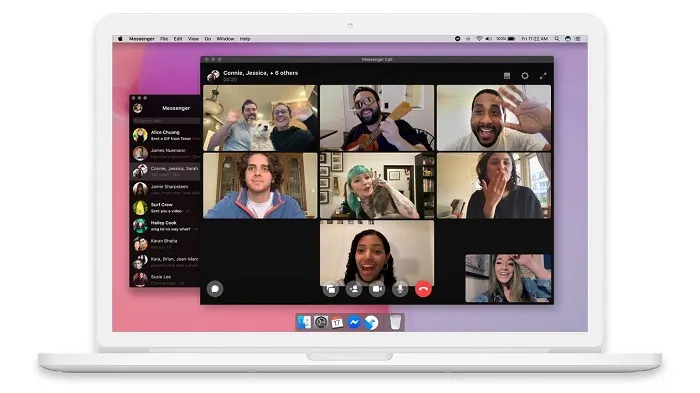Meta Pulls the Plug on Messenger for Windows and Mac
 Adshine.pro10/18/202514 views
Adshine.pro10/18/202514 viewsIn a move that likely won’t shake the digital landscape, Meta has announced plans to discontinue its standalone Messenger app for both Windows and Mac users—part of a broader effort to simplify and consolidate support across its growing suite of products.

As first reported by AppleInsider, Meta quietly updated its Help Center to include a notice explaining the deprecation of its desktop Messenger apps, along with guidance on available alternatives.
According to Meta:
“The Messenger app for Mac is being deprecated. After deprecation, you won’t be able to log into this app and will be automatically redirected to use the Facebook website for messaging.”
Meta notes that users will receive an in-app notification about the shutdown, and will have 60 days from that point to continue using the app before it becomes inaccessible.
“Once the 60 days are over, you’ll be blocked from using the Mac Messenger app. We encourage you to delete the app since it will no longer be usable.”
For those worried about losing old messages, Meta clarifies that chat history will remain accessible, provided users have secure storage enabled and a PIN set up. Even without these measures, most conversations will still be available through the web version of Messenger—though Meta suggests reviewing your backup settings if you’ve relied heavily on the desktop app.
The Messenger desktop app was first launched in 2020, at the height of the COVID-19 pandemic, when remote communication tools saw an unprecedented surge in demand. At the time, Meta highlighted that video calls on Messenger and WhatsApp had more than doubled, while Zoom was rapidly becoming the platform of choice for millions stuck at home.
However, as the world reopened and daily life normalized, the appeal of dedicated video chat apps waned. With fewer users relying on desktop communication tools, Meta’s Messenger apps for PC simply lost relevance.
Importantly, this change doesn’t mean desktop messaging is disappearing altogether. Users will still be able to chat directly from the Facebook website, maintaining full access to messages, group chats, and other Messenger features—just without the convenience of a separate application.
In practical terms, it’s a minor adjustment for most, but it will inconvenience a small segment of loyal desktop users who’ve grown accustomed to the standalone app experience.
Ultimately, this shift underscores Meta’s continued push to streamline its platforms, focus on efficiency, and reduce maintenance of redundant tools—another small step in aligning its ecosystem around a more unified, web-first communication strategy.
📢 If you're interested in Facebook Ads Account, don't hesitate to connect with us!
🔹 https://linktr.ee/Adshinepro
💬 We're always ready to assist you!